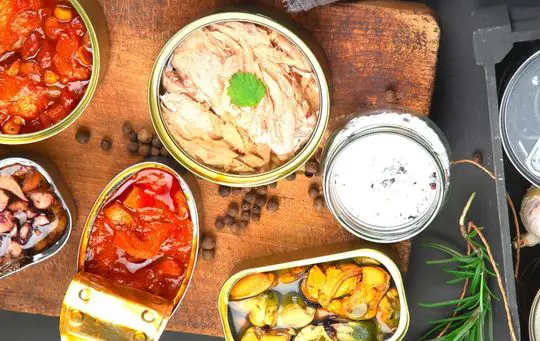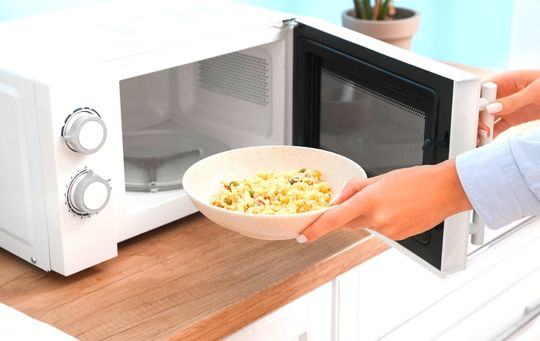Can You Boil a Frozen Egg (Dec 2023)

Boiling an egg is a common culinary task that many of us undertake regularly. Whether it’s for breakfast, a salad, or a quick protein-packed snack, boiling eggs is a convenient and nutritious cooking method. But what happens when you forget to thaw your eggs and find yourself with a block of frozen eggs? Can you boil them straight from the freezer, or do you need to wait for them to thaw?
Can You Boil a Frozen Egg Boiling a frozen egg is not recommended due to the risk of the eggshell cracking and potential uneven cooking. It’s safer to thaw the egg first using methods like refrigeration or cold water to ensure a better cooking outcome and minimize safety concerns.

Can You Boil a Frozen Egg
Boiling a frozen egg is generally discouraged because it can lead to several issues. Frozen eggs have a higher risk of their shells cracking or even exploding due to the expansion of ice within, making them challenging to cook evenly. Moreover, uneven cooking can result in an egg with a partially overcooked or undercooked center. There’s also a food safety concern as any cracks in the eggshell can allow bacteria from the surroundings to contaminate the egg, potentially leading to foodborne illnesses. To ensure both safe and properly cooked eggs, it’s advisable to thaw them using methods like refrigeration or cold water before attempting to boil them.
The Science of Egg Freezing
Before we dive into the freezing and boiling process, let’s understand why eggs freeze differently from other foods. Eggs are unique due to their high water content, which constitutes about 90% of the egg’s mass. Water, as we know, expands when it freezes. When eggs freeze, the water inside them turns into ice, expanding and causing the eggshell to crack.
Safety Concerns
Risks of Boiling Frozen Eggs
Boiling a frozen egg can be a risky endeavor due to the potential for the eggshell to crack or explode. When water inside the egg expands as it freezes, it can cause the eggshell to weaken and rupture upon heating. This can result in a messy kitchen and potential burns from hot egg contents splattering.
Moreover, if the eggshell cracks while boiling, it can allow bacteria from the surrounding environment to contaminate the egg’s interior. This poses a food safety risk, as consuming contaminated eggs can lead to foodborne illnesses such as salmonella.
The Thawing Process
Thawing Eggs Safely
To mitigate the risks associated with boiling frozen eggs, it’s advisable to thaw them before cooking. Thawing eggs properly is essential to maintain their quality and safety.
Here’s how to safely thaw frozen eggs:
- Refrigerator Thawing: This is the safest method for thawing eggs. Place the frozen eggs in a container or on a plate and leave them in the refrigerator for several hours or overnight. The cold and controlled environment of the refrigerator ensures a slow and safe thawing process, reducing the risk of cracking.
- Cold Water Thawing: If you need to thaw eggs more quickly, you can use the cold water method. Place the frozen eggs in a sealed plastic bag and submerge them in cold water. Change the water every 30 minutes to maintain a safe temperature. This method is faster than refrigerator thawing but still requires some time and attention.
- Microwave Thawing (Caution): While microwaving is the quickest method, it also carries the highest risk of eggshell cracking. If you choose this method, use a low-power setting and microwave the eggs in short intervals, checking them frequently to prevent overheating. Be extremely cautious when microwaving eggs to avoid potential explosions.
Avoid Rapid Temperature Changes
One critical aspect of thawing eggs safely is to avoid rapid temperature changes. Going from a frozen state to a high-temperature environment too quickly can lead to eggshell cracks. Gradual thawing in the refrigerator or cold water helps prevent this.
Boiling Frozen Eggs
Can You Boil a Frozen Egg?
Now that you know the potential risks and the importance of thawing eggs, let’s address the question: Can you boil a frozen egg? The answer is technically yes, but it’s not recommended for several reasons.
Uneven Cooking
Boiling a frozen egg can result in uneven cooking. Since the outside of the egg thaws and cooks faster than the frozen core, you may end up with an egg that is overcooked on the outside and undercooked on the inside. Achieving the perfect boiled egg consistency can be challenging when starting with a frozen egg.
Increased Risk of Cracking
As mentioned earlier, frozen eggs have a higher risk of cracking during cooking due to the expansion of frozen water inside the egg. Boiling a frozen egg exacerbates this risk, making it more likely that the eggshell will rupture and create a mess in your kitchen.
Safety Concerns
Boiling a frozen egg also presents food safety concerns. If the eggshell cracks during cooking, it can allow bacteria from the surrounding environment to contaminate the egg. Consuming a contaminated egg can lead to foodborne illnesses, which can result in symptoms such as nausea, vomiting, diarrhea, and abdominal pain.
Tips for Boiling Frozen Eggs
If you find yourself in a situation where you need to boil frozen eggs, here are some tips to minimize the risks and improve your chances of success:
- Thaw Partially: If you have limited time, you can partially thaw the eggs using the cold water method before boiling. This can help reduce the risk of cracking and uneven cooking. Once the eggs have thawed partially, transfer them to a pot of boiling water.
- Use a Timer: To achieve the desired level of doneness and minimize the risk of overcooking, use a timer. Boil the eggs for the appropriate amount of time based on your desired consistency (e.g., soft-boiled or hard-boiled).
- Handle with Care: When transferring frozen eggs to boiling water, handle them gently to avoid causing additional stress to the eggshell.
- Inspect Eggs: Before boiling, carefully inspect the eggs for any visible cracks. Discard any eggs with cracks, as they are more likely to rupture during cooking.
- Avoid High Heat: Boil the eggs at a gentle simmer rather than a rolling boil. This can help reduce the risk of cracking.
Conclusion
In summary, while it is technically possible to boil a frozen egg, it is not recommended due to the associated risks. Boiling a frozen egg can result in uneven cooking, increased risk of cracking, and food safety concerns. To ensure the best results and minimize these risks, it is advisable to thaw eggs properly before boiling.
Thawing eggs in the refrigerator or cold water is the safest approach, as it allows for a gradual and controlled thawing process. If you must boil partially thawed eggs, use a timer, handle them with care, and avoid high heat to achieve the desired consistency and reduce the risk of cracking.
Remember that food safety should always be a top priority when handling and cooking eggs. Cracked or contaminated eggs can lead to foodborne illnesses, which can be both unpleasant and potentially dangerous. So, the next time you’re planning to enjoy boiled eggs, make sure to thaw them properly for the best results and a safe culinary experience.




